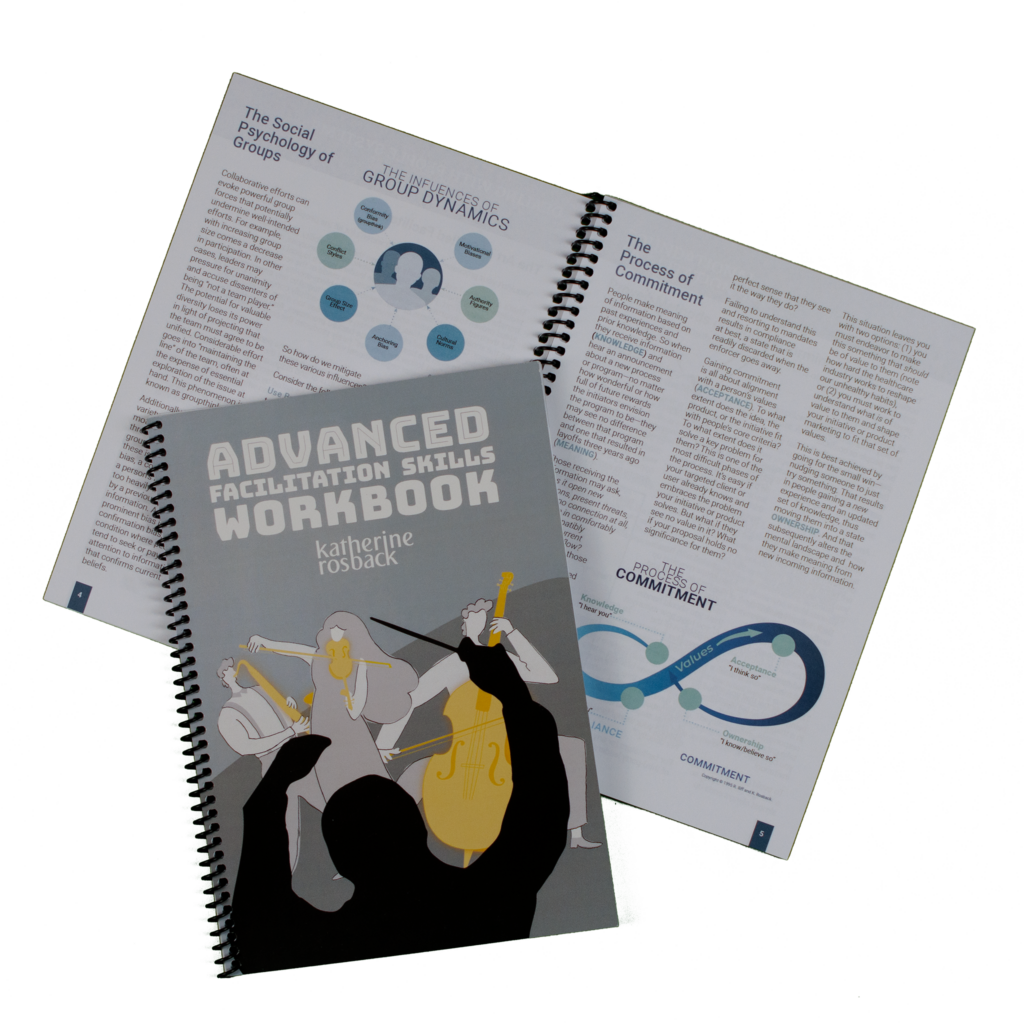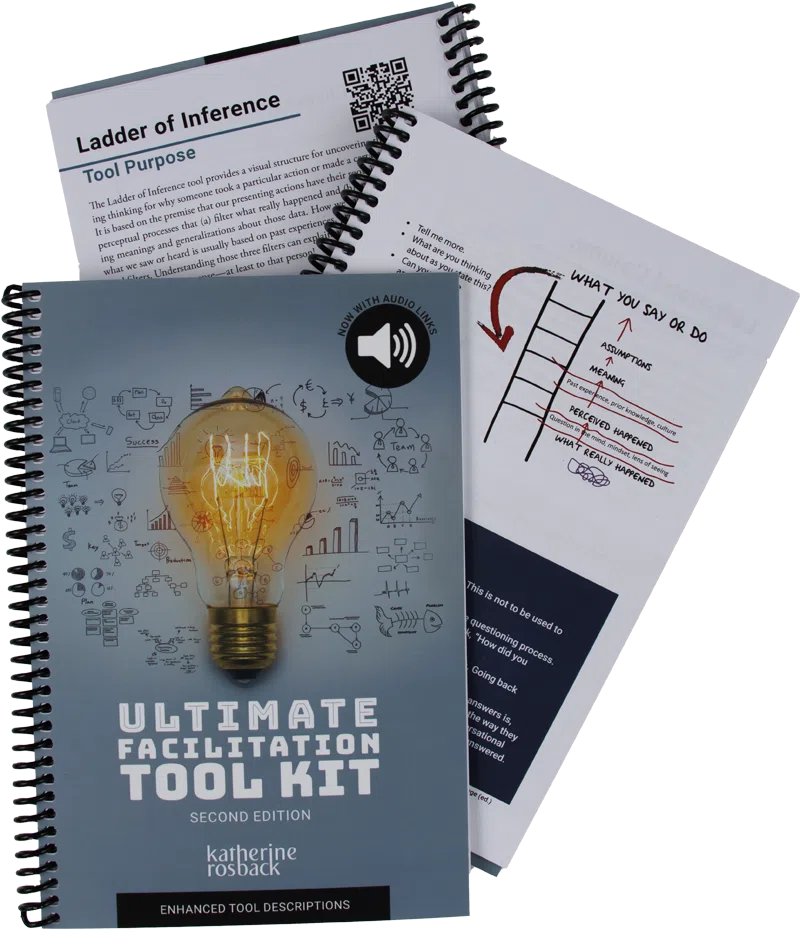
Improve your problem-solving and decision quality by developing critical skills for designing and holding the right conversations, mitigating group dynamics and decision biases, asking the better questions that foster more insightful thinking, and effectively applying facilitation tools that address the issue at hand–all in a practical and highly interactive setting.
Drawing on the instructor’s decades of experience in leading hundreds of decision teams and her extensive background in the neuroscience of human decision-making and change, conversation analysis, and group dynamics, this workshop teaches you how to effectively frame problems via systems thinking, create alignment on the ultimate objectives, elicit and preserve diverse thinking, manage group dynamics, move stalled decisions, avoid analysis paralysis, and influence discussions when you do not have authority.
Ultimately, this workshop equips leaders such as you to more effectively focus teams and decision boards on the conversations that need to be held to improve decision quality and create better outcomes.
Workshop Details
WORKSHOP FORMAT
This two-day workshop includes classroom instruction, paired exercises to apply new skills, and hands-on practice sessions for each participant. The workshop experience itself is designed for practical application, heavily incorporating case studies and role-playing exercises to allow participants to practice the tools and concepts in a safe environment. It is known for its interactive nature, providing real-time feedback from the instructor and peers. The course is known for being directly applicable to daily work challenges and is delivered without traditional PowerPoint slides, instead focusing on active engagement.
WHY ATTEND?
To Improve Problem Solving and Decision Quality: Participants learn to define the actual problem rather than jumping to solutions or treating symptoms. The workshop equips attendees to lead teams to higher quality decisions by understanding how to frame problems, avoid common cognitive biases like anchoring bias, and prevent analysis paralysis.
• To Master Asking the Better Question: A central focus is the “art of asking the right questions” to guide discussions, elicit different thinking processes, and achieve desired outcomes. Attendees learn how simple word changes can have a radical impact on the course of a discussion. Other learnings include specific question types, creating “Question Agendas” for meetings, and understanding how certain language, such as using the word “why,” can trigger defensiveness.
• To Enhance Facilitation and Leadership Skills: The workshop provides numerous tools and techniques for effective facilitation, even without formal authority. Attendees learn to engage quiet participants, influence superiors or partners with pre-conceived notions, handle conflict, manage rooms with conflicting ideas, and create buy-in and ownership among stakeholders. It helps participants to better “read the room” better and interpret underlying behaviors.
• To Acquire a Practical Toolkit and Frameworks: The course introduces the highly regarded Discussion Framework and allows practice with a variety of useful tools like the Values Map, Three Column Clarifier, Ladder of Inference, Brainwriting, and others (e.g., ADI, Batbone, Fishbone, , Conflict Pathway). Participants gain an understanding of when and how to apply these tools to structure conversations and discussions effectively as opposed to blindly applying the tools in a scripted process.
• To Improve Meeting Effectiveness and Preparation: The workshop emphasizes the importance of preparation for all meetings, no matter how small. It provides strategies to better structure meetings, define their scope, and ensure the necessary conversations to prevent common issues like teams recycling decisions, unprepared participants, or no decision being made.
• To Understand Cognitive Processes: The course offers insights into how the human brain processes information and makes decisions, helping participants identify and remove cognitive biases that can hinder effective choices.
Supportive workshop materials designed to be referenced long after the class is completed.

Leadership Workshop Workbook
Topics covered the biases and social psychology of groups, principles of robust meeting design, question dos and don’ts, the difference between compliance and commitment, why brainstorming does not work (and what to do instead), the power of using a small wins approach during implementation, and over 100 examples of questions to ask during each phase of the Discussion Process.

The Ultimate Tool Kit
Contains over 25 creative thinking, decision-making, engagement, and problem-solving tools. Provides tool purpose, constructions steps, and tips for use. Select tools include an audio file for a more in-depth discussion of tool usage.